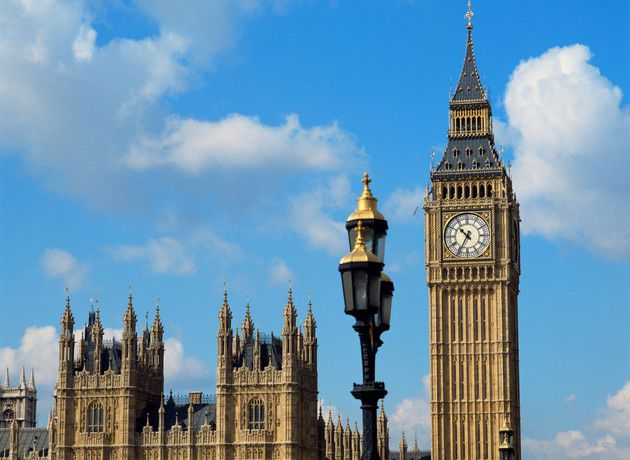
Food and drink industry gives cautious welcome to Tory victory
The food and drink industry has given a cautious welcome to the Conservative party’s general election win last night, which saw the Tories claim 364 seats, securing a majority parliament compared to rival Labour’s 203.
Hoping the result will bring an end to business uncertainty, here are the responses from the industry:
The Wine and Spirit Trade Association, chief executive Miles Beale, said:
“We look forward to working with the new government to end the crippling uncertainty which has plagued UK businesses since the vote to leave the EU. It is key that we complete the ambitious Brexit timetable with a withdrawal agreement that supports UK businesses and eliminates any risk of ‘No Deal’ scenario.
“We welcome the government’s pledge to back British business and this can start immediately by cutting wine and spirit tax. A cut to all hospitality business rates would also provide a welcome boost to the struggling high street.”
The Food & Drink Federation, chief operating officer Tim Rycroft, said:
“We congratulate the PM and his government on the result of the general election 2019. For too long, business has been mired in a sea of political uncertainty, hitting investment, productivity and long-term growth.
“As the UK’s largest manufacturing sector, food and drink is part of the UK’s critical national infrastructure and essential to national security. The nation’s £31.1bn industry employs over 450,000 people with a footprint in every community.
“UK food and drink is a national success story. As set out in our manifesto, we want to work in partnership with the Government to reach our full potential as the most dynamic, sustainable, resilient and competitive industry, by boosting exports, developing talent and encouraging innovation.
“Food and drink from Great Britain and Northern Ireland is prized for its quality and provenance. Through a new national Food Strategy and a dedicated future trade policy for food and drink, we can ensure our industry flourishes and brings good jobs and growth to every corner of the UK.”
British Retail Consortium, Helen Dickinson OBE, said:
“We look forward to working with the new government on the many issues facing retailers. The PM must now fulfil his manifesto pledge and urgently begin a fundamental review into the broken business rates system to relieve the burden on retail businesses and create a system fit for the 21st century.
“Retailers employ three million people across the UK, making the industry the UK’s largest private sector employer. It is therefore important that the Apprenticeship Levy is made more flexible to enable the industry to use funds for any form of accredited training to suit its skills needs and create a workforce fit for the future. Equally, retailers need to see action from government to tackle retail violence. Every day, 115 people are attacked at work - no one should go to work in fear.
“It is also vital over the coming days and weeks that the government commits to bringing clarity on the UK’s future relationship with the EU and pursues a fair deal for consumers that maintains tariff-free, frictionless trade with the EU.
“With retail conditions the toughest they have been for a decade, the Prime Minister must act to support the successful reinvention of retail locations and local communities. We look forward to working with Ministers on a strategy to strengthen the retail industry during this period of unprecedented change.”
CAMRA, chairman Nik Antona, said:
“CAMRA congratulates the Conservatives on their election win.
“Pubs make a significant contribution to our society, culture and economy and we hope the government will act quickly to ensure stability and a thriving future for beer and pubs.
“This means prioritising reform of the business rates system, consider a lower rate of tax on beer served in pubs, taking action to ensure the Pubs Code is fit for purpose.”
SCALA (supply chain and logistics consultancy) MD John Perry, said:
“Despite the fact we are now nine months past the original Brexit deadline, UK businesses are still facing a huge amount of uncertainty.
“While we do know that a clear Conservative victory on Friday will set the wheels of Boris Johnson’s withdrawal agreement in motion, many of the details still remain undecided.
“Of particular concern are the potential implications of Johnson’s Northern Ireland protocol.
“Border controls and customs processes for goods moving from Great Britain to Northern Ireland are yet to be defined, and there are worries that the proposed arrangements as currently constructed will cause considerable friction.
“As a result, doubts have also been raised over the feasibility of implementing the protocol Johnson’s self-imposed December 2020 deadline.
“So, where does this leave businesses trading between Great Britain and Northern Ireland, and potentially moving goods onwards to the Irish Republic?
“The precise details of Johnson’s agreement will hopefully become clear over the coming months. In the meantime, there are a few steps these businesses can take to ready themselves, whatever the outcome on Friday.
“The first is to take this opportunity to review their Incoterms with customers and suppliers. Incoterms define who is responsible for transaction costs and duties, so will have a direct impact on a business’s cost and risk exposure post-Brexit.
“Secondly, businesses that have not yet done so should register for HMRC’s Transitional Simplified Procedures. This will enable them to import goods into the UK without make a full customs declaration in advance, and also postpone paying duties and VAT.
“Thirdly, it’s essential that businesses ensure they are aware of the relevant temporary product and tariff codes and customs processes that may come into force.”






